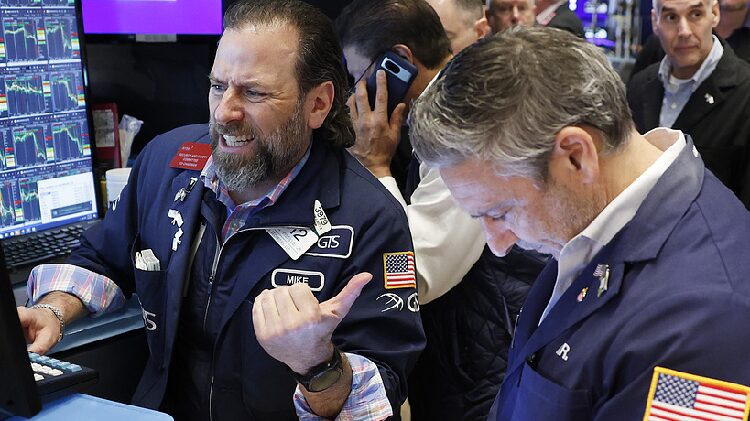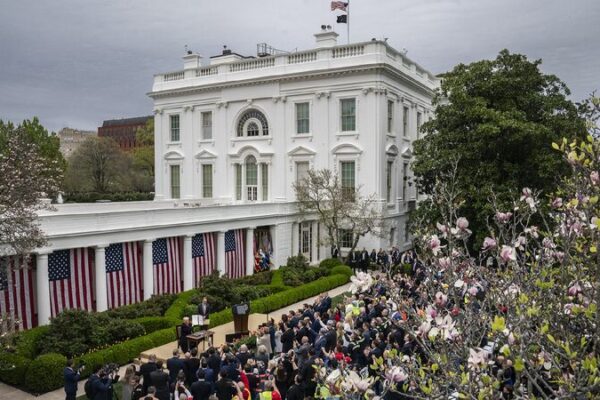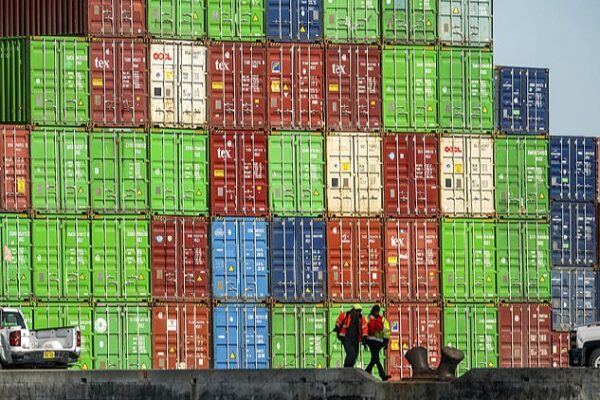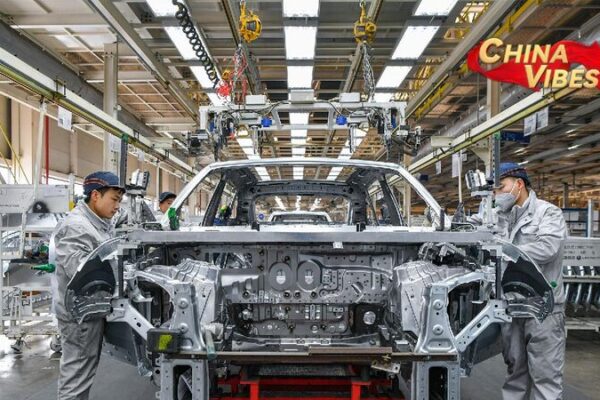U.S. Tariffs Trigger Economic Turmoil at Home
The recent wave of U.S. tariffs on goods from over 180 nations and regions has ignited economic chaos domestically, sending shockwaves through markets and industries. Immediately after the announcement, U.S. stock markets plummeted: the Dow Jones Industrial Average dropped nearly 4%, major companies like Apple and Nike saw their stocks nosedive, and an astonishing $6.4 trillion vanished from Wall Street in just two days.
A Self-Inflicted Wound
The rationale behind the tariffs is to encourage manufacturing to return to the United States. However, despite previous efforts, tech giants like Apple continue to rely heavily on international suppliers, with 94.5% of their supply chain overseas. The semiconductor industry faces similar challenges, with companies like Intel pausing projects and TSMC delaying production in the U.S.
These systemic issues suggest that tariffs alone cannot revive industries or bring back jobs. Instead, they inflate prices for American consumers already grappling with financial strain. U.S. farmers are also feeling the pinch; after tariffs in 2018, Midwest farm bankruptcies spiked by 30%, decimating generations of family farms. The current tariffs risk repeating this painful history.
Global Response and Retaliation
The global community has not remained silent. The Chinese mainland has responded with matching levies while keeping its market open to other international partners. For example, German car manufacturers now sell more vehicles in China than in their home country, and products from ASEAN nations enter Chinese markets tariff-free under new trade agreements.
Allies of the U.S. are also expressing discontent. The European Union is preparing retaliatory measures, with leaders warning against the dangers of escalating trade wars. Japan and other nations have voiced regret and concern over the implications of these policies.
Lessons from History
The adverse effects of protectionist tariffs are not unprecedented. The 1930 Smoot-Hawley Tariff Act is widely credited with exacerbating the Great Depression. Similarly, past U.S. steel tariffs led to short-term gains for producers but resulted in significant job losses downstream, forcing companies like Harley-Davidson to move production overseas to stay competitive.
The Bigger Picture
The current approach not only undermines the U.S. economy but also strains international relationships and credibility. While American leadership insists that these measures are necessary for long-term gain, the immediate consequences tell a different story. Industries are suffering, consumers are paying higher prices, and the nation’s role in global trade is diminishing.
Conclusion
In a rapidly interconnected world, isolationist policies can lead to unintended and detrimental outcomes. The U.S. tariffs, intended to bolster domestic interests, are having the opposite effect, stoking economic turmoil at home and alienating key international partners. As other nations continue to forge ahead with trade agreements and economic cooperation, the U.S. risks being left behind unless it reevaluates its stance on global trade.
Reference(s):
cgtn.com








